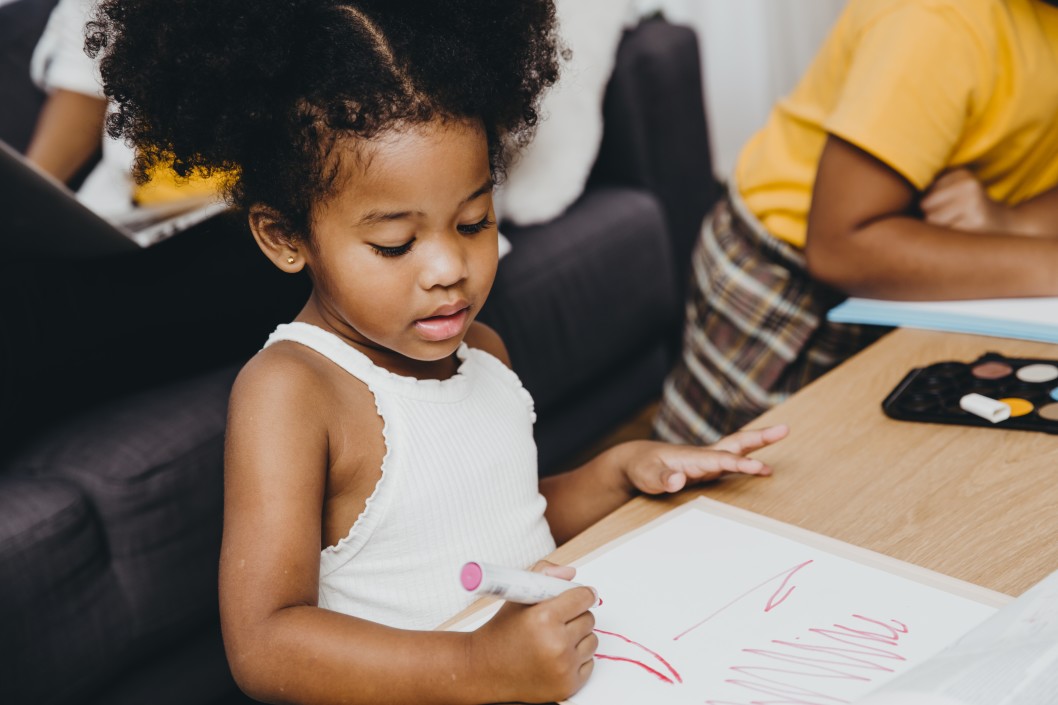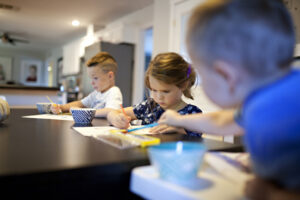As children approach the preschool-aged years, they begin to interact with other kids and adults in their social circles. It’s at this age that children enter a new phase of social development. The social developmental milestones learned in a preschool classroom environment are critical for growth.
At any age, our children’s daily activities and interactions are crucial for their development. When it comes to preschoolers, we will focus on the social milestones that your preschool-aged children will be undergoing and how you can better prepare them for this new stage of life.
Playing With Other Children
A significant part of children’s social development revolves around playtime. Parallel play, which is playing near and around other children, is one of the first steps to full socialization surrounding playtime. Eventually, children will engage in cooperative play, but the parallel play is often a necessary building block and contributor to social development for early childhood. As children enter preschool, they find themselves in a new social setting involving playing, learning, and socializing with their peers.
In preschool, children will learn how to communicate and interact with other preschool children during playtime and learn sharing and cooperation skills. You can help prepare your preschool child for positive playtime interactions by encouraging them to play with other children their age and planning playdates. The more children can interact with their peers, the quicker they learn these social skills and be better prepared for the routine change when entering preschool.
Talking and Communicating
Children are continually learning and developing different communication skills, especially when entering preschool. You can prepare your children for preschool social interactions by encouraging children to use their words and speak clearly and confidently. Here are a few ways you can reinforce effective communication at home:
- When children are upset, encourage using their words to convey the issue
- Ask clarifying questions if something is ever unclear
- Simplify your child’s statement and repeat it back to them to teach clear communication
Remember to start simple and be patient and encouraging when teaching children verbal communication skills. Children are more equipped to speak and interact with other children and their preschool teachers when taught proper communication skills.
Behavior Changes
New environmental changes, such as starting preschool, may start to influence your child’s behavior. In these new settings, children will be interacting and communicating with each other, and conflict is likely to arise. As children become more independent, you may notice more signs of tantrums and conflicts.
You can encourage problem-solving for social interactions by teaching children how to resolve conflicts like learning how to share toys with other kids. It’s always easier said than done, but when it comes to finding resolutions with your children, these tips on how to parent with positivity will undoubtedly come in handy. Learn how you can benefit your child’s social development by providing a warm and affectionate environment here.
Picking a Preschool
Your child’s social development is so important, and that’s why we highly encourage doing the utmost research before choosing a preschool. Whether social or physical, you must be equipped with the tools, knowledge, and resources to prepare your children for all of the different developmental milestones in their lives.
Are you interested in learning more about our daycare or preschool services? Check out all of our different class offerings online.


